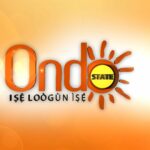Teflon is a tough synthetic resin used in making non-stick cooking utensils and engineering parts. Its most important quality is that it is not adhesive, and nothing sticks to it. When people are described as “Teflon”, it means they are impervious to blame or criticism and their reputation remains undamaged in spite of numerous past scandals or misjudgements. Perhaps the most well-known of such people was US Mafia Boss John Gotti who, despite his crimes, was acquitted in three high-profile trials. Unfortunately for Gotti, he was eventually convicted, and learnt like so many with old cooking pots, that Teflon does not last forever! The recent televised poorly-conducted Senate ministerial confirmation hearings commonly referred to as “screening exercise” entrenched Nigeria’s “Teflon” professional career political office holders, and caused a negative shift in public perception of the Senate. To paraphrase Columnist Sonala Olumhense, the “sham exercise” left the nation with a wide assortment of certificate forgers, kleptocrats, former governors who had ruined their states, religious bigots and others burdened with unanswered questions, doubts and mistrust. He believes that they cared less about their questionable antecedents because the Akpabio-led Senate was guaranteed to confirm them regardless.
Truthfully, Senate confirmation hearings otherwise referred to as “screening” have become a waste of time and money. Many Nigerians expressed disappointment over the list of recycled politicians, described as “an assembly of transactional and traditional politicians who have failed the nation in the past”, who were successfully screened for confirmation. Several of those listed had previously played anti-democratic roles, or were simply lackeys, cronies, and “politicians” who have never contested elections in their lives. The very notion that such nominees should be screened without attaching portfolios to their names is a clear indication that there was never any intention of the exercise being thorough, in-depth, or meticulous. Regrettably, there seems to be no comprehensive strategy in sight to ever address proper confirmation hearings of ministers listed together with the intended portfolio. Apparently, neither competence nor past record of malfeasance in public service is of concern to the Senate. The Senate president himself a former governor ensured that senators avoided referring to former governors as sharing responsibility for the intractable mess the nation finds itself in. Rather, he decreed that “automatic confirmation” would be given to them and former NASS members who in his opinion all “deserve” ministerial appointment without investigation of their records.
In widely criticised public relations gaffes, the Senate president, apparently still enamoured with his emergence, and overwhelmed by his self-importance, delights in showing delight in himself. He routinely engages in levity, jocularity and smiling happily while presiding in the Upper Chamber. His media handlers would do well to advise him to exhibit signs of concern, compassion, and seriousness in light of all the suffering and hardships in the land.
Opposition party members claim that the decision to rush through the screening exercise was taken in order to ensure that petitions against nominees would not be considered. Quite cynically and illogically, when objections were raised against some nominees based upon petitions, the Senate President retorted that they were there to screen; not consider petitions! Clearly, performance in office has become of no consequence whatsoever. The Senate president said of one recycled minister that, “Having been nominated again for a ministerial position, there is no point asking him many questions.” In this manner, a supposedly serious screening exercise was reduced to an embarrassing procession of “bow and go” interspersed with inane questions such as the ability to recite the national anthem’s second verse! It is generally accepted that the nation’s problems were caused by corrupt or incompetent former governors, legislators and ministers. Therefore, the Senate’s performance in screening them successfully without reference to their records is highly condemnable. The list of former political officeholders accused of serial unconstitutionality, yet cleared by the Senate over the years, is too extensive to reproduce here. Perhaps worse of all, Section 42 of the constitution was violated by not submitting a complete ministerial list in time, yet senators said nothing. They must wake up to their responsibilities and ensure that they discontinue the previous administration’s habit of allowing the presidency to decide those sections of the constitution they will follow, and those they will not. Senators are well-paid to protect and promote the best interests of the people, and the nation cannot allow screening charades to continue as they represent a major handicap to good governance. There is indeed little reason to believe that Nigerian senators, many of whom are compromised morally, ethically, or politically, are the right people to screen ministerial nominees for integrity and patriotism, especially when it involves condemning behaviour that they revel in! The televised screening of the confirmation hearings regrettably confirmed the widely held belief that Nigerian political officeholders no longer consider ethics and morality to be important character traits for public office in Nigeria. Paradoxically, the nation has not run out of men and women of character, patriotism, and ability to serve meritoriously in the civil service, so there is really no need to keep recycling professional political officeholders who should be blamed for their role in running the nation aground. Unfortunately, notwithstanding, how poorly they perform, or the malfeasances they committed in the past, they have nothing to fear because Nigeria is now enmeshed in an era of Teflon political officeholders!

 Join Daily Trust WhatsApp Community For Quick Access To News and Happenings Around You.
Join Daily Trust WhatsApp Community For Quick Access To News and Happenings Around You.

